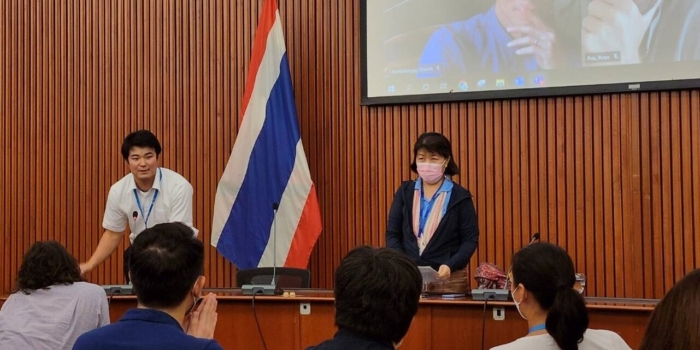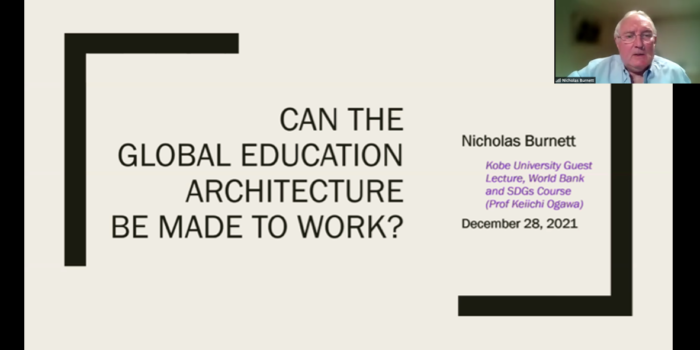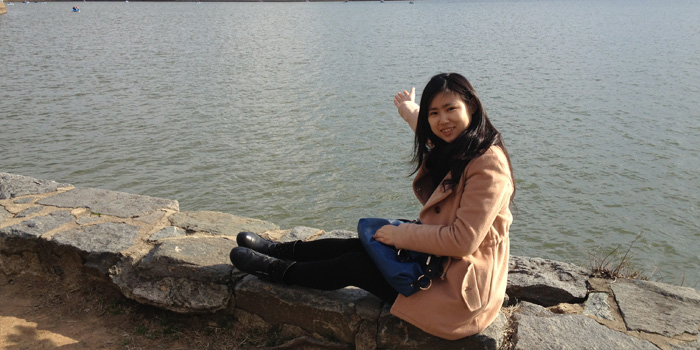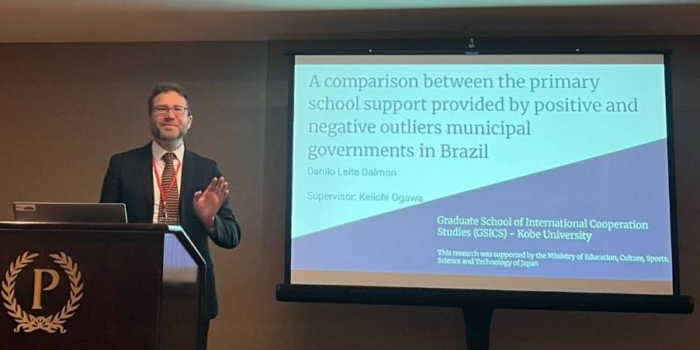From June 1st, 2022 to November 30th, 2022, I conducted an internship at UNESCO Educational Bureau of Asia Pacific Region (UNESCO Bangkok). I had to manage my tasks online for the first two months due to the COVID-19 pandemic. From August 1st, I moved to Thailand and started my internship in person. My main duties were categorized into three activities: (1) Assistant of projects, (2) Policy review, and (3) Coordination of meeting with country partners.
Firstly, I engaged in several projects during my internship. The project I have spent the most time on was “UNESCO Associated Schools Network (ASPnet): Collaborative action research on the role of schools in achieving SDGs in Asia-Pacific”. This project was funded by Japan Funds In Trust (JFIT). I joined the national meeting held in Okayama, Japan and assisted in the preparation of the regional meeting held in Tokyo. In these meetings, participants were school teachers, the Ministry of Education (UNESCO ), and experts on Education for Sustainable Development (ESD). Before the regional meeting, I reviewed the educational system and characteristics of three countries: Japan, Thailand, and Vietnam. During the meeting, I took photos, wrote minutes, and wrote a summary. After the regional meeting, I communicated with teachers and the ministry of education to follow-up the project, as well as to correct precise information. Finally, I drafted a teacher’s guideline for promoting ESD. Since this project was in its final phase, I could learn how to monitor the progress and report the final outcomes to counter partners as well as organizing the meetings. Also, I have engaged in another project related to “Together for Peace (T4P)”, which was in its initial phase. I communicated with several researchers from different institutions and organized meetings.
Secondly, I Assisted in the policy and strategic analysis by visualizing the UN Cooperation Frameworks (UNSDCFs/ UNDAFs) based on UNESCO’s education mandates. The objective of the analysis was to assess the degree of alignment and coherence of UNESCO’s Education mandates in UNSDCFs in Cambodia, Lao PDR, Thailand, and Vietnam. This activities will contribute: (1) to get a better understanding of the extent to which UNESCO’s mandate is reflected in current UN Cooperation Frameworks in the Southeast Asia sub-region; (2) to reinforce UNESCO’s strategic positioning as a specialized agency in line with the UN reform; (3) to strategically inform UNESCO support to UN Country Teams through joint work plans building on Cooperation Frameworks; and (4) to initiate discussions on the level and type of regional support requested from the UNESCO Asia and Pacific Regional Bureau for Education. By doing this activity, I could understand how each organization or each policy (e.g., country level policy, UNESCO policy, and UN framework) interact with each other.
Thirdly, I assisted in organizing and coordinating meetings, such as the UNESCO-SEAMEO Annual Meeting, the Afghanistan Core Coordination Team Meeting, All staff meeting, etc. During the meetings, I took minutes and photos. After the meetings, I wrote several articles for the UNESCO website. It was an invaluable opportunity to communicate with counterparts (e.g., Global Partnership for Education [GPE], Education Cannot Wait [ECW], Ministry of Education, Embassy, and other UNESCO regional offices).
I would like to convey my greatest appreciation to UNESCO Bangkok staff members, and Executive Office, especially, my supervisor Dr. Rika Yorozu for her kind guidance and support, Mr. Toshiya Kai for his kind support and gentle advice, and Ms. Ann for her kind assistant. I am grateful to my academy advisor Professor Keiichi Ogawa, who always gives me various opportunities to improve my hard and soft skills to work for international organizations, and my seniors who kindly give me advice on how to write CV, how to prepare for the interview, and how to work in an international organization.
Related articles:
Authored by Kohei Uno (Master’s Student)
Related






